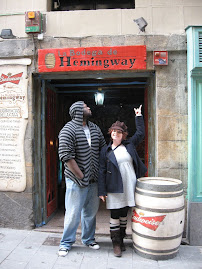Okay, Dr. T looked at my first draft of the proposal and had a big issue for me to address:
Will this primarily be a dissertation about rhetoric and/or identification (in which I employ autism discourse as a vehicle for exploration)?
Or, is my dissertation about the discourse about autism (in which I argue that a rhetorical examination will yield insights)?
I see how I'm sort of doing both at the moment but here's how I got to where I am currently:
When I first started researching about autism, as a new member of this discourse community, I scoured the Internet, watched movies, tuned into to television news programs. Kept hearing people ask about autism: "He's like Rainman?" Kept coming up against these symbolic representations of autism and Tobey that didn't really fit. He wasn't gifted at anything in particular, he was very verbal for an autistic child, but he certainly wasn't the "demon" child I've seen in movies, either.
I couldn't identify my son with any of the representations that I saw in movies or in television news programs.
So, I looked around on the Internet more and found online autism communities comprised of parents, siblings, teachers, and autistic individuals. There were discourse communities wrestling with who gets to "identify" themselves as autistic, who gets to "speak" for the autistic, how to reflect the beauty of our autistic children in light of the (overwhelmingly negative) representations of autistic individuals on television and in the media. The latter being a major objective of many blogs and online postings via youtube that I've noticed. This discourse community striving to identify themselves in light of these common representations.
Identification as means of agency (consubstantiality) to illicit change in society regarding the treatment and representation of autistic individuals. Identification as means of challenging these common symbolic representations: the autistic as "savant," as "a burden," as as "demon," as a "non-human," as "white, middle-class condition." Identification as way of coping with challenges that come with raising a child with mental/cognitive disabilities. Identification as way of coping with challenges that come with living with a mental/cognitive disability.
I suppose talking about both questions? Does that make sense? Can I do that?
I'm still wrestling, I suppose, with this...
Thursday, July 26, 2007
Subscribe to:
Post Comments (Atom)








No comments:
Post a Comment